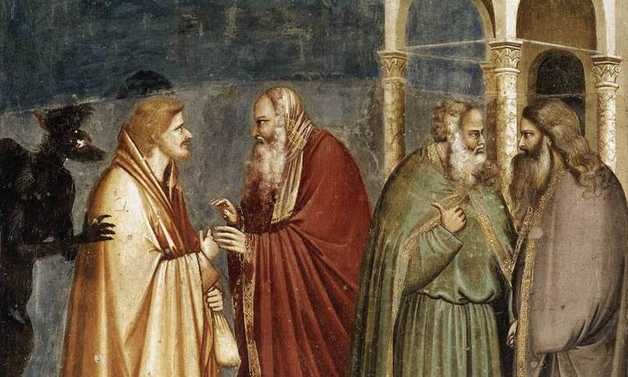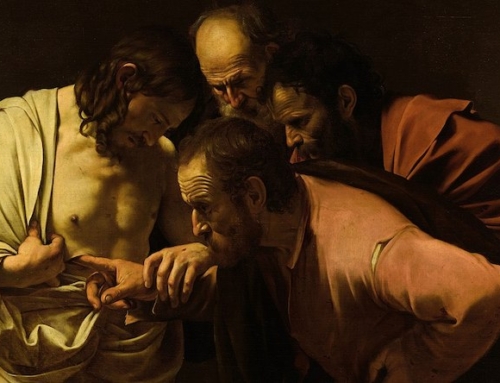From that time on he looked for an opportunity to hand him over. (Mt 26:16)
According to Catholic tradition, today, Holy Wednesday, is also called Spy Wednesday, in reference to Judas’s secret arrangement with the chief priests to hand Jesus over to them. In this clandestine meeting, Judas betrayed the friendship of the Son of God. Christ had chosen him to be one of his most intimate companions, but Judas rejected Him for a mere thirty pieces of silver.
There are indications earlier in the Gospels that Judas was a character inclined to disloyalty. In John chapter 12, we have the story of Mary the sister of Lazarus anointing Jesus’s feet with costly ointment. Judas responds with a complaint: the ointment should have been sold and the money given to the poor. Perhaps the other disciples reckoned Judas to be a righteous and holy man. To all appearances he was a man who had given up everything to follow Christ. He seemed to be consumed with zeal for the poor and downtrodden. St. John, however, discloses the truth that Judas was really more interested in himself than in Christ or the poor, for he used to steal money from the common purse.
One may wonder why Christ chose a man such as Judas to be one of His apostles. After all, being God, He knew what sort of a man Judas was. A couple of obvious reasons present themselves. First, by choosing Judas, Christ shows us that He rejects no one out of hand. He offers His grace and love to each and every human being. He is willing to accept each of us in all our weakness and sinfulness. He is patient, knowing that our transformation and our conformation to Him is a slow process. He does not turn us out after one or two or a thousand slip-ups. The offer of forgiveness is always on the table. But neither does Jesus force us to love Him in return. He allowed Judas to remain with Him until Judas decided to leave. If we fall away, it is through our own fault and hardness of heart.
Second, in choosing Judas, Christ permits us to see that the Church is made up of fallen men. There will always be sin, scandal, and corruption even among her leaders. This serves to remind us that our primary trust and confidence ought to be placed not in man but in God, who is powerful enough to continue working good through His Church despite the failures and shortcomings of its members.
At the Last Supper, Judas responded to Jesus’s revelation that He would be betrayed, “Surely it is not I, Rabbi?” He flatly denied his sin in public. We are all like Judas to some degree or another. We all have our faults and sins by which we betray Christ. Some we may admit and try to work on. Others we deny and try to hide. The key is that when we do finally own up to them and experience remorse, we should respond not like Judas who hung himself, but rather like the other apostle who betrayed Jesus and then welcomed His mercy and forgiveness.
✠
Image: Giotto, Judas Receiving Payment for his Betrayal







